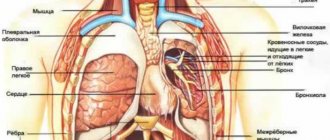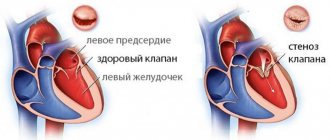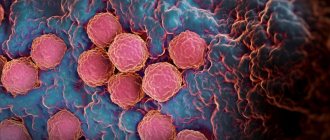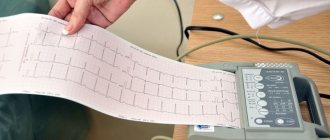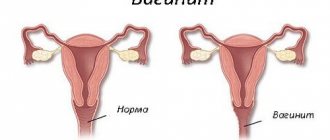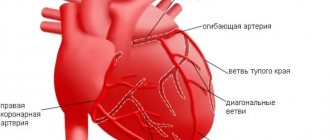A burning sensation in the chest is a clinical manifestation of a number of pathological conditions. The rib cage (or, as it is also called, the chest) is a part of the body that contains the entire chest cavity and the upper component of the peritoneum. They are a “receptacle” for vital human organs. Discomfort in them often signals the presence of pathologies of the heart, liver, gastrointestinal tract or lungs.
You can get rid of this symptom forever only by identifying its initiating factor. To do this, you need to seek professional advice. The specialist with whom you make an appointment will conduct an examination and prescribe appropriate diagnostic tests, thanks to which it will be possible to accurately diagnose, determine a treatment strategy and begin to implement it.
Where to go if you have a burning sensation in your chest?
Are you a resident or guest of the capital and are you faced with a similar problem? Contact CELT. Our clinic is multidisciplinary and has departments of various specializations. You can make an appointment with a cardiologist, therapist, neurologist or gastroenterologist and get the help you need.
Our diagnostic department offers ample opportunities for correct diagnosis and identification of pathological conditions in the initial stages of development. Our staff is staffed with highly qualified specialists: doctors of the highest category, candidates and doctors of science with decades of medical practice behind them.
You can find out our prices by going to the “Services and Prices” tab in this section. To avoid misunderstandings, we recommend that you check the numbers with our operators by calling the number.
Physiological causes of burning in the chest
Experts identify a number of initiating factors for such a phenomenon as a burning sensation in the chest. The most common of these is poor diet, including fatty, spicy, salty foods, carbonated water and fast food, along with frequent overeating or eating food before bed.
The above leads to the contents of the stomach entering the esophagus, where it irritates the mucous membrane, which causes discomfort. They are accompanied by nausea, heartburn and belching, as well as bloating. In order to exclude this, it is enough to change your diet by minimizing the above-mentioned foods, optimizing portion sizes and eliminating the consumption of food before bedtime.
The same can be said about excessive consumption of coffee and alcoholic beverages, as well as smoking. All of them can cause a burning sensation in the chest, which will stop as soon as their consumption is reduced to a reasonable limit. It is important to understand that it is not the norm and its appearance is a reason to visit a doctor.
A number of reasons are associated with diseases of the cardiovascular system, characterized by the inability of blood vessels to provide the heart with a sufficient volume of oxygen. This occurs with ischemia, which is manifested by a local decrease in blood supply due to narrowing or blockage of the arteries, due to which the most important organ of the human body suffers.
Do not forget about neurological factors, when a burning sensation occurs due to compression or damage to the nerve ending or in stressful situations, with neuropsychiatric disorders. In addition, it can be caused by pathological conditions characterized by damage to the bronchial mucosa or trachea.
Diet, diet, lifestyle
Eating spicy foods often causes heartburn.
An orderly lifestyle is one of the most important conditions for complete treatment. Eliminating stress factors, maintaining a sleep and rest schedule, eating regularly at least 5 times a day - such seemingly simple recommendations can significantly improve the condition of a person suffering from this symptom. A balanced diet is very important.
Its purpose is to normalize the metabolism of food, exclude from the diet foods that cause excessive gas formation, as well as fermentation of undigested food residues in the stomach and intestines. Recommended Products:
- Vegetable and chicken broth soups, slimy soups.
- Rabbit, turkey, chicken, steamed or boiled.
- Porridges and side dishes from cereals.
- Fresh and steamed vegetables.
- Fresh fruits and fruit salads.
- Fermented milk products with a low fat content.
Food should be slightly above room temperature, neither cold nor hot. It is advisable to keep portions small, but eat frequently and not monotonously.
Foods that need to be excluded from the diet for the entire duration of treatment and recovery:
- Alcohol of any strength, beer, carbonated drinks.
- Pickled and canned foods.
- Fatty broths.
- Fatty meats and fish.
- Baking with yeast dough.
- Chips, chewing gum.
- Coffee, chocolate.
Individual intolerance to certain drugs that cause a burning sensation in the stomach is possible: citrus fruits, tomatoes, garlic and onions. Under no circumstances should you eat dry food or on the go, take long breaks between meals, or eat foods that are too hot or too cold. It is also advisable to follow these rules:
- You should not eat or drink later than two hours before bedtime.
- You cannot wear tight clothes, belts, trouser belts, tight trousers, or jeans.
- There is no need to lean back and lie down immediately after eating.
- It is advisable to raise the head of the bed by 10-15 cm.
Following simple recommendations and correcting the diet, giving up bad habits will significantly alleviate the condition of a person suffering from a burning sensation in the stomach.
Diseases that cause burning in the chest
Only a doctor who has everything necessary for diagnosis can identify the cause of a burning sensation in the chest in the middle, right or left. You should not engage in self-diagnosis, as it is fraught with the risk of complications.
| Diseases | Triggering factors |
| Hearts | Sharp pain and burning in the chest near the heart may be a sign of a serious condition that requires immediate medical attention. This occurs with the following diseases:
|
| Liver | Experts identify a number of diseases of the liver and biliary tract, the symptoms of which are manifested by a burning sensation in the sternum. These include:
Other clinical manifestations of the above diseases are as follows:
|
| Gastrointestinal tract | A phenomenon such as heartburn always leads to a burning sensation and pain symptoms due to irritation of the walls of the esophagus by gastric juice. As for diseases, one of the symptoms of which is a burning sensation in the chest, they are as follows:
|
| Intercostal neuralgia | It is a pain syndrome that develops as a result of damage to the intercostal nerves due to various reasons, ranging from compression to infection or intoxication. This syndrome is a sign that the patient has diseases of the organs of the chest wall, mediastinum, and spinal cord. Clinical manifestations are as follows:
|
| Pneumonia | Acute inflammatory infectious lesion of the lungs, which can be lobar or focal. Symptoms of the first include a cough, a sharp increase in temperature, burning and pain in the sternum, and weakness. As for the second, its onset is hardly noticeable; it appears after acute respiratory diseases. Clinical manifestations in addition to pain on inspiration, shortness of breath, cyanosis, wet cough. |
| Scoliosis | Persistent sideways curvature of the spinal column relative to its axis. A burning sensation in the chest occurs due to the fact that with this disease, abrasion of the intervertebral discs and compression of the nerve endings occurs, which provokes serious discomfort. |
| Intercostal myositis | Inflammatory processes of skeletal muscles located between the ribs. On palpation, pain symptoms appear along the entire intercostal space. Experts identify three pain points: the spinal column, the sternum and its lateral surface. In addition, there is swelling of the affected part, redness or, conversely, paleness of the skin, sore throat, cough and headache. |
Consequences of ignoring a dangerous symptom
If the condition when it bakes in the stomach is not diagnosed and treated, the consequences can be the most unpredictable. Untreated gastritis and ulcers can lead to significant damage to the mucous membrane, including perforation of the stomach walls, gastric bleeding, and peritonitis.
In advanced cases, death cannot be ruled out. Constant irritation of the walls of the stomach by excessive release of hydrochloric acid and the reflux of bile into it can eventually lead to the development of an oncological process and the appearance of inoperable tumors.
Which doctor should I contact if I have a burning sensation in my chest?
Regular repetitions of this symptom are a reason to contact a therapist. He will conduct an examination, collect anamnesis, ask questions that interest him - and either prescribe treatment or refer him to:
- gastroenterologist - if gastrointestinal diseases are suspected;
- orthopedist - if osteochondrosis is suspected;
- neurologist - if osteochondrosis is suspected;
- cardiologist - if you suspect diseases of the cardiovascular system.
They, in turn, will prescribe diagnostic tests to make an accurate diagnosis.
conclusions
There are many reasons why the heart burns. Most of them are associated with chronic pathologies that require complex and long-term treatment.
However, other sources of intense pain include pathologies that directly threaten human life. Therefore, at the first symptoms, which are accompanied by disorders of the nervous system (arms or legs begin to go numb), expressed by respiratory failure (shortness of breath, debilitating cough), consult a doctor for qualified help.
How is the diagnosis done?
In order to diagnose a symptom, the doctor only needs to conduct a survey and hear the patient’s complaints. The disease causing it can be diagnosed by conducting comprehensive studies. First of all, the patient is examined and a medical history is collected, after which laboratory tests of blood and urine, a detailed blood test, and determination of hormonal levels are prescribed. In addition, hardware tests are prescribed, the selection of which is based on preliminary studies. It could be:
- X-ray of the sternum;
- Ultrasound scanning of the internal organs of the chest cavity;
- Electrocardiography;
- Gastroenterological studies.
Preventive actions
In order to prevent the development of this unpleasant symptom, you need to take a number of measures:
- Treat inflammatory processes in a timely and correct manner;
- Eat right, minimize the consumption of salty, spicy, excessively fatty foods;
- To live an active lifestyle;
- Avoid stressful situations;
- Follow a daily routine, set aside enough time for sleep;
- Regularly undergo preventive examinations.
Don't forget: a burning sensation in the sternum can be a sign of serious illness. Its occurrence is a reason to seek professional medical help!
Make an appointment through the application or by calling +7 +7 We work every day:
- Monday—Friday: 8.00—20.00
- Saturday: 8.00–18.00
- Sunday is a day off
The nearest metro and MCC stations to the clinic:
- Highway of Enthusiasts or Perovo
- Partisan
- Enthusiast Highway
Driving directions
